Off the Road
California: The Tempest
This post is part of a series about Cornerstone Theater Company's California Bridge Tour, the culmination of our work with ten communities over the past ten years through our Institute Summer Residency Program. Cornerstone's touring production California: The Tempest celebrates and unites these ten communities onstage, in the audiences, and in the content and themes of the play's script and design. This series uses the communities as jumping off points to share thinking and experiences specific to the project, as well as Cornerstone's longtime practice of creating community-based theatre.
I was wrestling the last of my suitcases out my front door. It had taken two trips to get them all down the stairs, and I was boldly hoping to take them all at once now that I was on level ground.
“Oh, excuse me!” I said, pulling my luggage out of someone's path as they tried to come in the door. It was my new neighbor with a friend.
“Where are you headed?” they asked me, taking in my baggage situation.
I reviewed the options in my head. I had been answering this question a lot lately, and I knew there was no answer I could give that was simple. “Arvin,” I stated belatedly. Normally I would say Bakersfield, since it was the larger nearby city that most people were familiar with, but my brain was scattered this morning.
“I grew up in Arvin! What are you going there for?” came the response of my neighbor's friend.
One of the magical things about Cornerstone is you never know what something will become, what the results will be, or who will be affected—including yourself.
I blinked, surprised. That was not a response I was used to getting. Blank stares or “Where's that?” with a crinkled up nose were more common.
“I'm stage managing a ten-city, state-wide tour of a community-engaged play. It's an adaptation of The Tempest” didn't quite roll off the tongue easily, and led to follow up questions. We talked for quite a while. Not only had they grown up in Arvin, the first stop of the tour, but they had spent their summers working in the oil fields of Lost Hills, our second stop, a place so unknown I usually explained it as the place “where the 46 meets the 5” (now I explain it as the place where pistachios come from: 75 percent of the nation's pistachio crop!).
Since starting to work with Cornerstone a year and a half prior, I had come to know these moments well. The serendipitous connections with strangers, where the things I was doing with Cornerstone touched something in another's experience. Once on a train I talked with the manager of a sober living house, who was looking for more group activities to involve their residents in. We talked for a half an hour before the inevitable “So, what do you do?” question brought out that I was currently stage managing a play with and about members of the addiction recovery community. The connection was not only fruitful for both of us, it was beautiful.
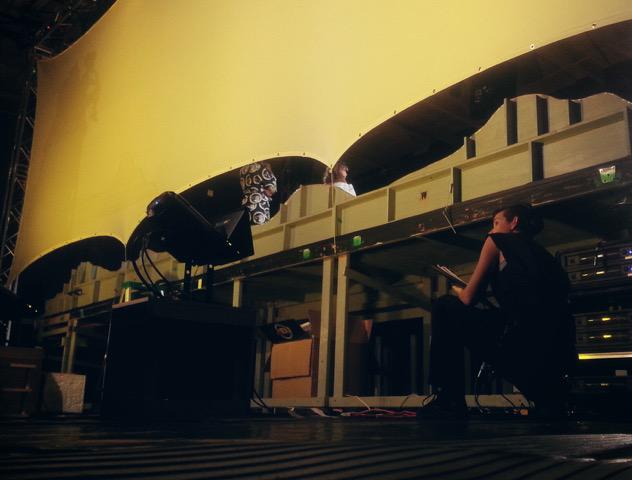
Setting out to do this play, California: The Tempest, for a whole calendar year (the longest I have ever done a single show) was always going to be a big part of my life. The tour had not been rehearsing and performing consistently throughout the past year, but even during the weeks I was not officially on tour, I found that the tour was still permeating what I was doing and how I was connecting with people.
When getting to know a new person, something that happens to be a favorite activity of mine, very often the typical second question is “What do you do?” Prior to my involvement with Cornerstone, these conversations went generically. While theatre may be a conversation starter at times, being a stage manager doesn't sound sexy enough to provoke follow-up questions. Working with communities, on the other hand, whether they are public school students and food service workers, the Skid Row community, addiction and recovery, or now these ten geographic towns across California, seems to inspire endless curiosity.
A lot of people have a connection with one of the communities on this tour or an investment in what we are doing, like my neighbor's friend, or my roommate's dad, who lived in Fowler for a summer. The bartender who used to work out in Holtville. The docent in Santa Barbara who spent a lot of time at the Blue Ox Mill in Eureka. I myself formerly lived in San Francisco, and worked frequently at Z Space, where the tour performed; having worked in the space again, but for Cornerstone this time, was my own full circle moment.
It's not always a straight-forward connection to place, but a connection with what we are doing—the physical therapist, who had never been to a play before and didn't know how they felt about Shakespeare, who was genuinely in awe that one of the roles was performed entirely in Spanish while we were in Pacoima.
The very fact that each place we go, we involve local folks in the production, both on and offstage with us, is novel and impressive to many people I talk with. Folks who have never been onstage before. Folks who want to create more opportunities like this for the people in their town after the show ends. Folks who have something to say about their community. Folks who are finding the strength to get up on a stage in front of people for the first time. Folks who are honing and perfecting their language skills.
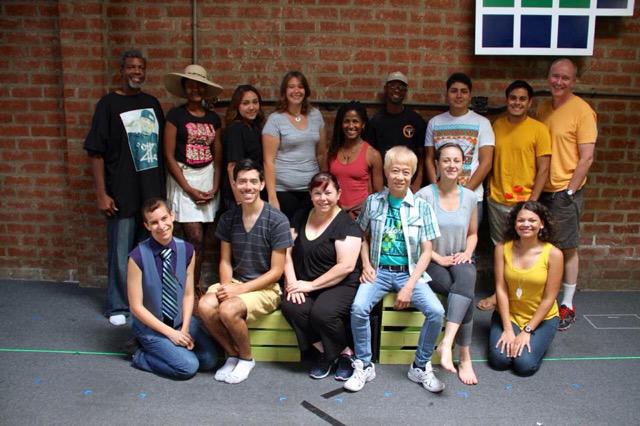
When I first began working with Cornerstone, it was easy to see the effect on the people I was working with. I could see it in the way they carried themselves and heard it in what they said. It has taken me longer to see the impact of talking about the work with others. But I'm starting to realize now, whether I'm talking with others in my field or someone who knows nothing about theatre, people are struck by what Cornerstone does and how we do it.
This tour, its length, breadth, and scope, has provided unique opportunities for so many people and things. I know for me, one of the opportunities I have been afforded is that there is opportunity to talk about the work. To connect with people in new ways, whether it be with the folks in all of these amazing communities or people who may not otherwise have been familiar with these places.
One of the magical things about Cornerstone is you never know what something will become, what the results will be, or who will be affected—including yourself. And I think we're affecting more than just the people we work with directly and those in the audience. I see it in the faces of all the people I talk to: expanding expectations for theatre, Shakespeare, art, and community.

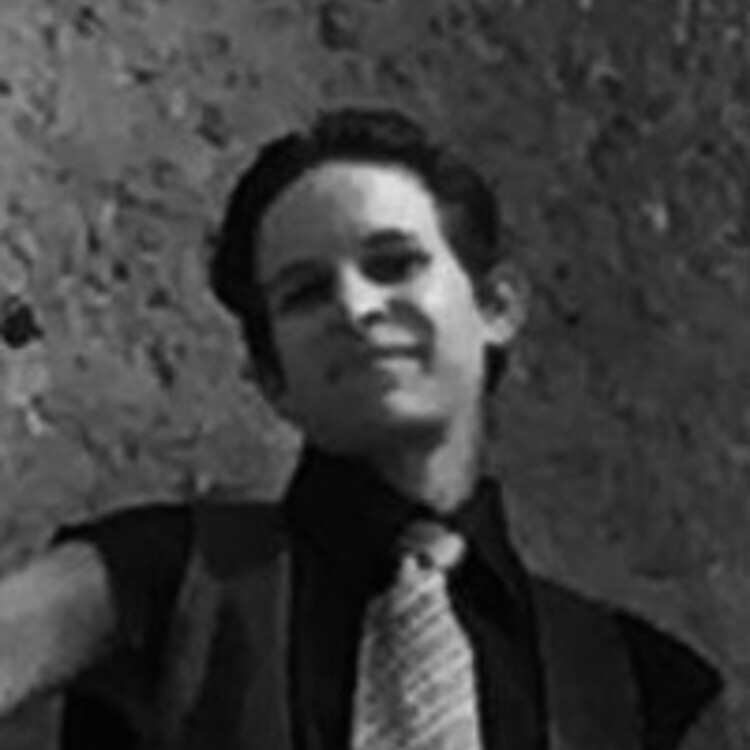
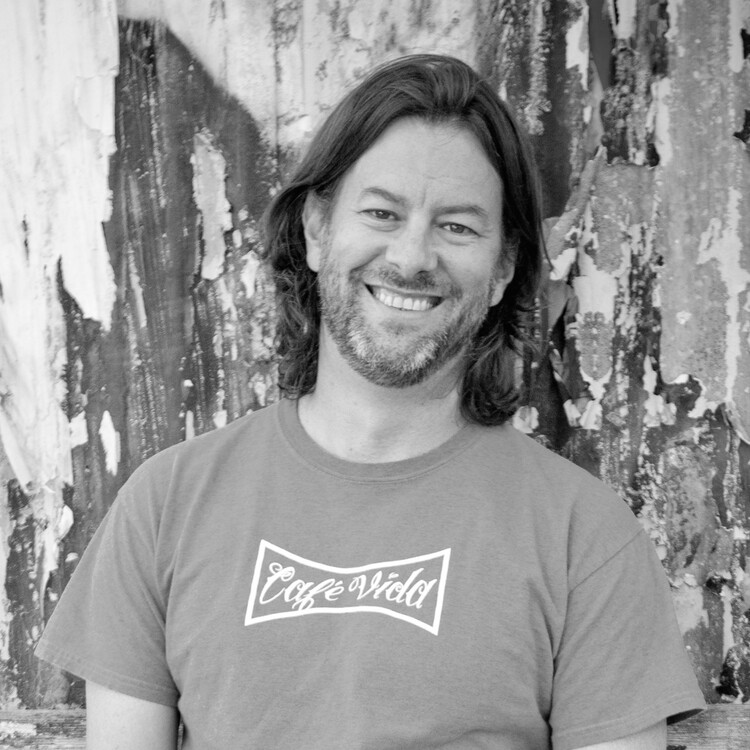
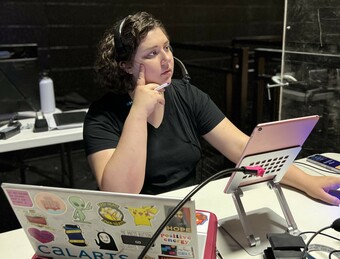

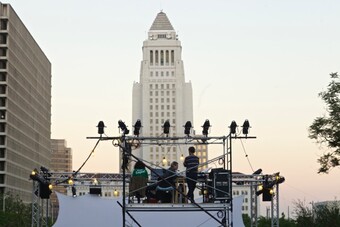

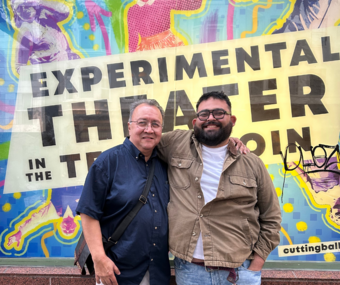


Comments
The article is just the start of the conversation—we want to know what you think about this subject, too! HowlRound is a space for knowledge-sharing, and we welcome spirited, thoughtful, and on-topic dialogue. Find our full comments policy here